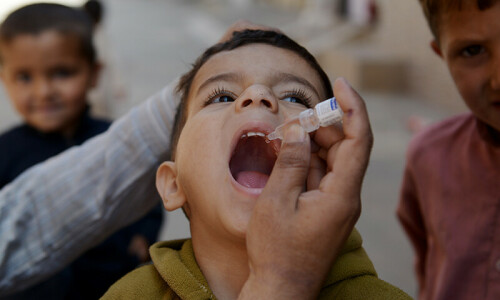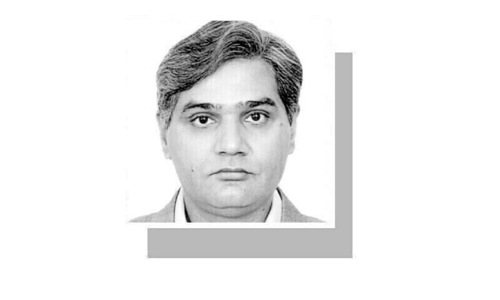THIS refers to the report ‘Punjab-Sindh dispute over water deepens’ (June 13). The water crisis in Sindh, though seemingly political, has once again reminded the stark realities about the water issues the country has been facing since long, which may shortly transform to catastrophic situation if not addressed urgently and effectively.
The availability and quality of water, or lack of it, in Pakistan has various dimensions. The per capita water availability has been decreasing rapidly in recent years, having reached currently an alarming level of 908 cubic meters that is even below the water scarcity level of 1,000 cubic meters, or 1,000,000 litres.
This means Pakistan is already a water-scarce country. Only 35 per cent of the population has access to clean drinking water. Sadly, water accessibility has been declining persistently, in particular since 2005 on a year-on-year basis. The situation is compounded as the available drinking water is unsafe, specifically in urban and rural areas of Sindh and Punjab. The impact of contaminated water on human health is of great concern.
According to recent reports, the samples taken from different water sources of surface and groundwater from various locations were not in compliance with the guidelines set by the World Health Organisation (WHO) or the Pakistan Standards and Quality Control Authority (PSQCA).
Shockingly, none of the many samples collected from Karachi and Lahore, from time to time, were of clean safe water as they were either turbid or polluted with bacteria or contaminated, or a combination of both, exceeding the permissible limits and regulatory standards. The situation in Islamabad is not good either, whereas in small towns and rural areas it is even critical.
Water samples taken from industrial cities of Punjab had high concentration of toxic elements, like arsenic, fluoride, lead, cadmium, iron and other industrial effluents. Also, tubewell water is full of bacteria, and contains nickel, cadmium, nitrate and iron in quantities higher than the permissible limits.
In the wake of poor quality of drinking water, the market for bottled mineral water has risen exponentially in recent years. It is ironic, however, that a number of mineral water brands have been declared by the testing laboratories, from time to time, to be containing water unfit for human consumption. The consumption of unsafe water leads to waterborne diseases, and, resultantly, severe health problems.
It is estimated that almost 70pc diseases, such as hepatitis, typhoid, cholera and diarrhoea, are caused due to poor quality of water. The Pakistan Medical Association (PMA) has recently confirmed that poor quality of potable water has been responsible for 30pc of all diseases and 40pc of total deaths occurring in the country every year.
Unfortunately, nothing concrete has been done as yet to improve the availability of clean drinking water in spite of tall claims by successive governments. The nation needs a comprehensive strategy for water management for a more sustainable future.
Hussain Siddiqui
Islamabad
BATTLE IS NOT OVER YET: As the positivity rate of Covid cases subside in the country, people have started flouting standard operating procedures (SOPs), putting their lives and of those around them at risk. I went to the Sea View area recently, and was surprised to see that many people were not wearing masks or observing social distancing. They were enjoying at the beach carelessly as if the pandemic was over. The authorities concerned must ensure the implementation of SOPs.
Muhammad Jan Jatoi
Larkana
CORPORAL PUNISHMENT: Students in Pakistan are often subjected to corporal punishment by teachers. Although punishments are common in educational institutions, they do not guarantee improvement in student’s behaviour or progress. It is great that the National Assembly has passed ICT Prohibition of Corporal Punishment Bill that has banned all forms of corporal punishments in formal, informal and religious educational institutions. The bill will also penalise teachers for punishing children, as punishment is not a solution.
Waseem Ahmed
Hub
PHARMACIES: It is surprising that most pharmacies and medical stores in Pakistan do not have registered pharmacists, but the government and other stakeholders prefer to remain silent on this major issue. Isn’t this an issue of serious concern? The government should implement the relevant rules and ensure the presence of registered pharmacists at every medical store.
Kaleem Ullah
Swabi
GWADAR WOES: Gwadar may well have the potential to brighten the future of Balochistan and, indeed, Pakistan, but the locals are continuing to struggle for even the most basic of necessities, like potable water. Poor people are compelled to buy expensive water tankers that cost around Rs1,500. Women and children have to go miles in search of water. The federal and provincial governments must take some effective steps to address this problem.
Mahnoor Siraj
Awaran
Published in Dawn, June 29th, 2021













































